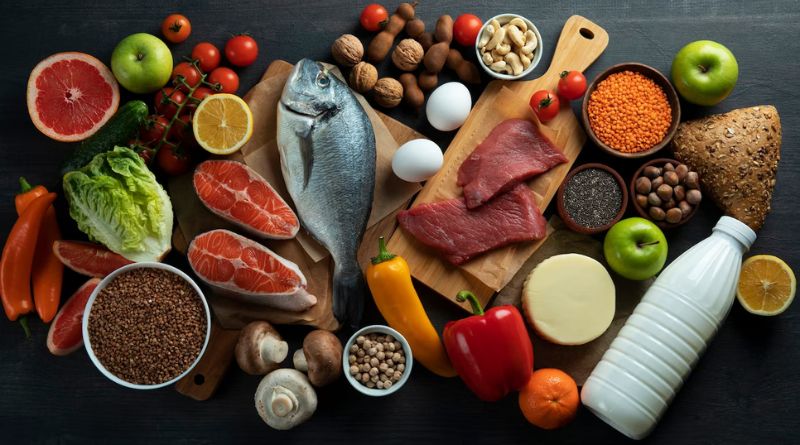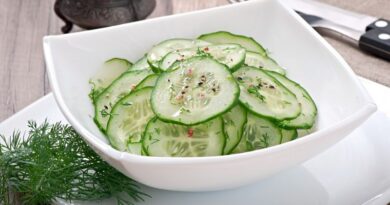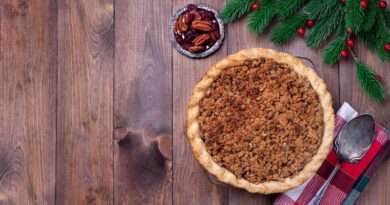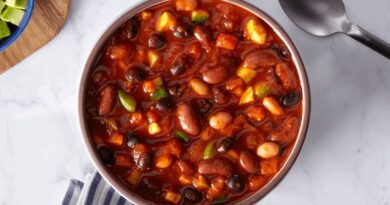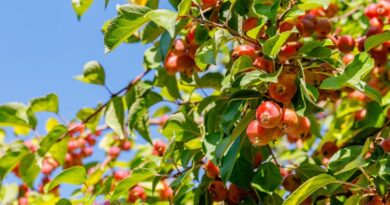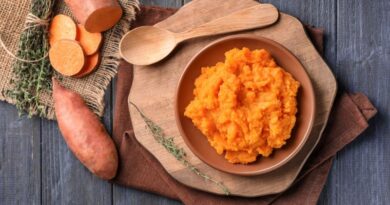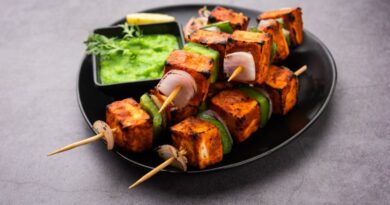Maintaining a healthy diet is essential for overall well-being, and one important aspect of a balanced diet is ensuring an adequate intake of iron. Iron is an essential mineral that plays a crucial role in the production of red blood cells and the transportation of oxygen throughout the body. In this blog post, we will explore the top ten best iron-rich foods that can be incorporated into a healthy diet. From lean meats and seafood to plant-based sources like legumes and leafy greens, we will discuss the nutritional benefits of these foods and how they can help prevent iron deficiency. By including these iron-rich foods in your meals, you can support your body’s iron needs and maintain optimal health.
Top Iron-Rich Foods for a Healthy You
Iron is a vital mineral that plays a key role in maintaining healthy bodily functions, such as transporting oxygen and supporting cell growth. Including iron-rich foods in your diet is essential to prevent iron deficiency anemia and promote overall well-being. In this article, we will explore the top 10 best iron-rich foods that can help you maintain optimal iron levels.
Red Meat
Red meat, encompassing varieties like beef, lamb, and liver, stands out as a prominent source of heme iron—a form highly absorbable by the body. Heme iron, derived exclusively from animal sources, boasts superior bioavailability compared to non-heme iron found in plant-based foods. The rich concentration of heme iron in red meat makes it an efficient choice for individuals looking to boost their iron levels.
Including moderate servings of these meats in your diet can contribute significantly to fulfilling your daily iron requirements. However, it’s crucial to balance red meat consumption with a diverse array of iron sources for a well-rounded and health-conscious approach. Additionally, individuals with dietary restrictions or preferences can explore alternative iron-rich options, ensuring a comprehensive and sustainable approach to meeting their nutritional needs.
Remember, while red meat offers valuable nutrients, moderation, and diversity in food choices remain key for a holistic and balanced diet.
Shellfish
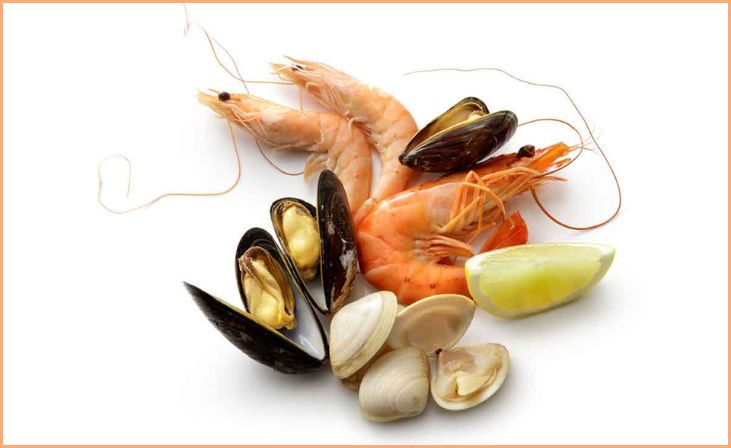
Delightfully delicious, shellfish such as clams, mussels, and oysters present a delectable way to boost iron intake. Beyond their savory taste, these marine treasures are rich in heme iron, a highly absorbable form that enhances the body’s iron levels effectively. In addition to being iron powerhouses, shellfish contribute essential nutrients like zinc and vitamin B12. Zinc plays a vital role in immune function, while vitamin B12 is crucial for neurological health.
The combination of heme iron with these complementary nutrients makes shellfish a nutritional powerhouse. However, it’s advisable to ensure sustainable and responsible sourcing practices when incorporating shellfish into your diet. Whether enjoyed as a culinary delicacy or integrated into diverse recipes, shellfish offer a savory and nutrient-packed option for individuals seeking to increase their iron and overall nutritional intake.
Quick Link: 10 Delectable Sandwich Types That Every Food Lover Should Try
Spinach
Spinach, a leafy green marvel, stands out as a formidable source of non-heme iron, making it an excellent choice for individuals following vegetarian or vegan diets. Beyond its iron content, spinach is a nutritional powerhouse, boasting folate and vitamin C. Folate contributes to the synthesis of DNA and red blood cells, while vitamin C enhances the absorption of non-heme iron, maximizing its utilization by the body.
The versatility of spinach allows for easy integration into various culinary creations – from vibrant salads to nutrient-packed smoothies or deliciously cooked dishes. By incorporating spinach into your meals, you not only infuse your diet with iron but also elevate the nutritional profile of your culinary endeavors.
Whether enjoyed raw or cooked, spinach provides a tasty and healthful option for those seeking to fortify their iron levels and overall well-being.
Legumes
Legumes, including beans, lentils, and chickpeas, emerge as nutritional powerhouses that not only contribute significant amounts of iron but also deliver a substantial dose of fiber and protein. This combination of nutrients makes legumes a versatile and valuable addition to a well-rounded diet. To maximize the absorption of non-heme iron present in legumes, it’s beneficial to pair them with foods rich in vitamin C.
This dynamic duo enhances the body’s ability to absorb iron, ensuring optimal utilization. Whether incorporated into hearty stews, savory salads, or flavorful curries, legumes offer a plant-based source of iron that aligns with dietary preferences while promoting overall health.
By embracing the nutritional bounty within legumes, individuals can fortify their iron intake, support digestive health with fiber, and enjoy a plant-powered protein boost.
Pumpkin Seeds
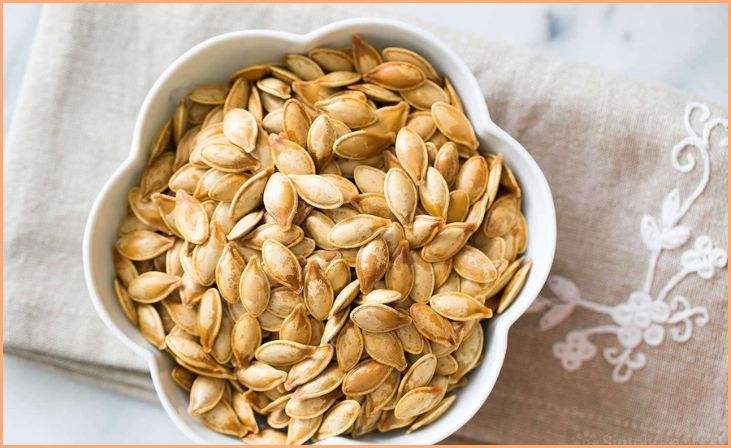
Pumpkin seeds, also known as pepitas, stand out as a versatile and nutrient-rich snack that not only provides a healthy dose of iron but also delivers essential fatty acids and an array of minerals. These tiny powerhouses can be enjoyed in various ways—either on their own as a satisfying snack or incorporated into dishes like yogurt, salads, or oatmeal for added crunch and nutritional value.
The iron content in pumpkin seeds contributes to supporting overall health, particularly for individuals seeking plant-based sources of this essential mineral. Additionally, the inclusion of essential fatty acids and minerals enhances the seeds’ nutritional profile, making them a wholesome and convenient option to boost iron intake and promote overall well-being.
Whether sprinkled atop a salad or enjoyed as a standalone snack, pumpkin seeds offer a delightful combination of flavor, texture, and nutritional benefits.
Quinoa
Quinoa, an ancient grain revered for its nutritional prowess, stands as a stellar choice for individuals seeking plant-based iron alternatives. Not only does quinoa provide a complete protein source, but it also boasts a significant iron content, addressing the needs of those looking to enhance their iron intake without relying on animal products. Beyond iron, quinoa is a rich source of fiber, contributing to digestive health and offering a sense of fullness.
Its nutritional profile extends to include various essential nutrients, adding to its appeal as a wholesome and versatile grain. Whether enjoyed as a base for salads, as a side dish or incorporated into various recipes, quinoa brings both nutritional depth and a satisfying texture to the table.
As a plant-based option that combines protein and iron, quinoa stands as a valuable addition to the diet, supporting overall well-being and catering to the diverse dietary preferences of those embracing a more plant-focused approach.
Dark Chocolate
Indulging in the decadence of dark chocolate not only satisfies the taste buds but also contributes a small yet notable amount of iron to your diet. Opting for dark chocolate with a high cocoa content ensures a more significant iron presence. While relishing the rich and complex flavors, it’s essential to practice moderation, as dark chocolate is calorie-dense.
Balancing the pleasure of this delightful treat with mindful consumption aligns with a health-conscious approach. Dark chocolate, with its potential iron-boosting benefits, can be enjoyed as part of a well-rounded diet, adding a touch of luxury to your nutritional choices. Embracing the richness of dark chocolate in moderation allows you to savor both the flavor and the potential nutritional perks it brings, contributing to a holistic and enjoyable approach to your dietary lifestyle.
Tofu
Tofu, derived from soybeans, stands as a versatile and valuable iron source, particularly beneficial for individuals following vegetarian or vegan diets. This soy-based product not only offers a meat substitute but also serves as a foundation for a variety of flavorful dishes. Rich in plant-based iron, tofu supports a well-rounded diet, providing essential nutrients without relying on animal products. Incorporating tofu into your meals allows for creativity in the kitchen, as it readily absorbs flavors and adapts to different cooking styles.
From stir-fries to curries, tofu’s adaptability makes it a staple for those seeking diverse and iron-rich plant-based protein sources. By including tofu in your culinary repertoire, you not only enhance the nutritional profile of your meals but also contribute to a sustainable and plant-focused dietary lifestyle.
Nuts
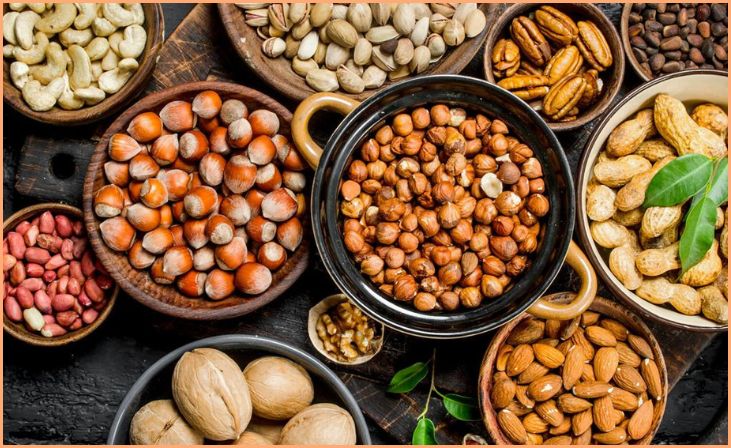
Nuts, including almonds, cashews, and pistachios, offer a delightful and nutrient-rich way to boost your iron intake. These crunchy snacks not only provide a satisfyingly savory or sweet option but also pack a decent amount of iron, contributing to your overall nutritional well-being. In addition to being an excellent source of this essential mineral, nuts are rich in healthy fats, making them a wholesome choice for heart health. Incorporating a variety of nuts into your diet provides not only a diverse flavor profile but also a range of vitamins, minerals, and antioxidants.
Whether enjoyed on their own as a convenient snack or added to salads, yogurt, or trail mixes, nuts offer a convenient and delicious means to support your iron needs. With their combination of crunch, flavor, and nutritional value, nuts stand as a versatile and healthful addition to any well-rounded diet.
Also Read: 10 Healthy Foods to Buy at Kroger: Nourishing Your Body
Fortified Cereals
Breakfast cereals, particularly those fortified with iron, provide a convenient and accessible option to boost your iron levels. These fortified cereals are designed to enhance their nutritional content, including iron, making them a straightforward way to incorporate this essential mineral into your diet. When selecting a fortified cereal, it’s advisable to choose options with minimal added sugars to ensure a healthier start to your day.
Checking the nutrition labels can help you make informed choices, prioritizing cereals that contribute to your iron intake without excessive sugar content. The added convenience of fortified cereals makes them a time-efficient solution for individuals looking to address iron deficiencies or maintain a well-balanced diet. Enjoying these cereals with your preferred choice of milk or yogurt further enhances their nutritional profile, offering a tasty and nourishing breakfast option.
With the right selection, fortified cereals can be a simple yet effective addition to your morning routine, supporting your overall iron needs while satisfying your taste preferences.
Incorporating iron-rich foods into your diet is crucial for maintaining optimal health and preventing iron deficiency. Whether you prefer animal sources like red meat and shellfish or opt for plant-based choices like spinach and legumes, a well-rounded diet can provide you with the iron your body needs to function at its best.
Bottom Line
In conclusion, incorporating iron-rich foods into your diet is crucial for maintaining optimal health and preventing iron deficiency. The ten foods discussed in this blog post, including lean meats, seafood, legumes, leafy greens, fortified cereals, nuts and seeds, tofu, quinoa, dried fruits, and dark chocolate, offer a variety of options for obtaining iron from both animal and plant-based sources. It’s important to note that the body absorbs iron more efficiently from animal sources, but plant-based sources can still contribute to meeting iron requirements.
To enhance iron absorption, pair iron-rich foods with vitamin C-rich foods, such as citrus fruits or bell peppers. If you suspect an iron deficiency or have specific dietary restrictions, it’s advisable to consult with a healthcare professional or registered dietitian for personalized guidance.
FAQs
Iron is crucial for the production of hemoglobin, a protein in red blood cells that carries oxygen from the lungs to the rest of the body. It also plays a role in energy production and immune system function.
Symptoms of iron deficiency may include fatigue, weakness, pale skin, shortness of breath, and difficulty concentrating. Severe iron deficiency can lead to iron deficiency anemia.
Yes, you can obtain sufficient iron from plant-based sources such as lentils, beans, tofu, and dark leafy greens. Combining these foods with vitamin C-rich options can enhance iron absorption.
The recommended daily allowance for iron varies by age, sex, and life stage. Adult males typically need around 8 mg per day, while adult females may need 18 mg per day, especially during pregnancy. It’s essential to consult with a healthcare professional to determine your specific iron needs.

